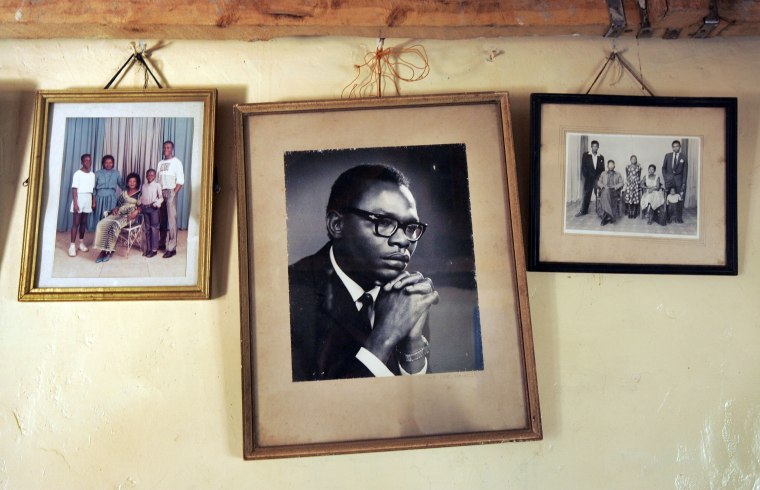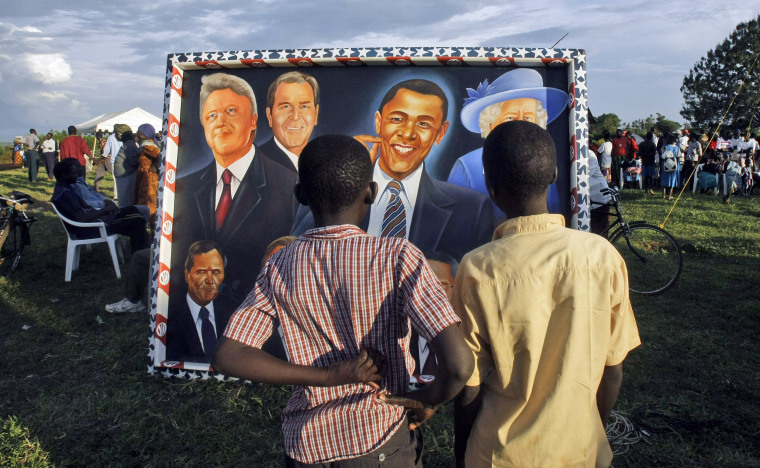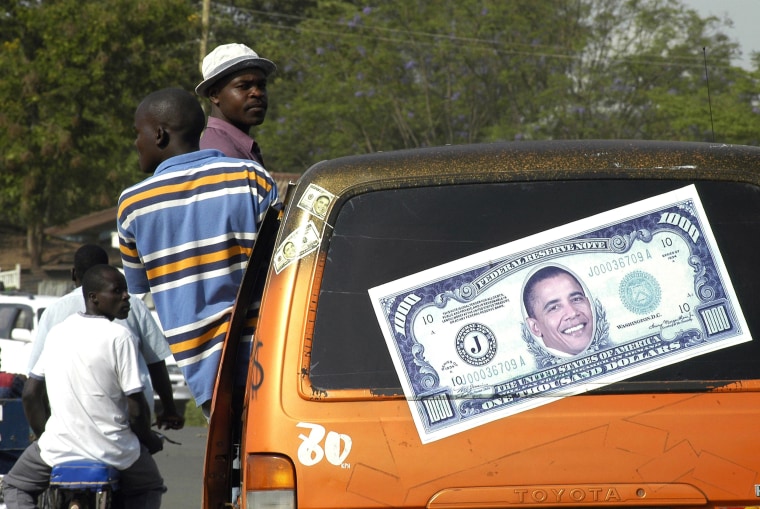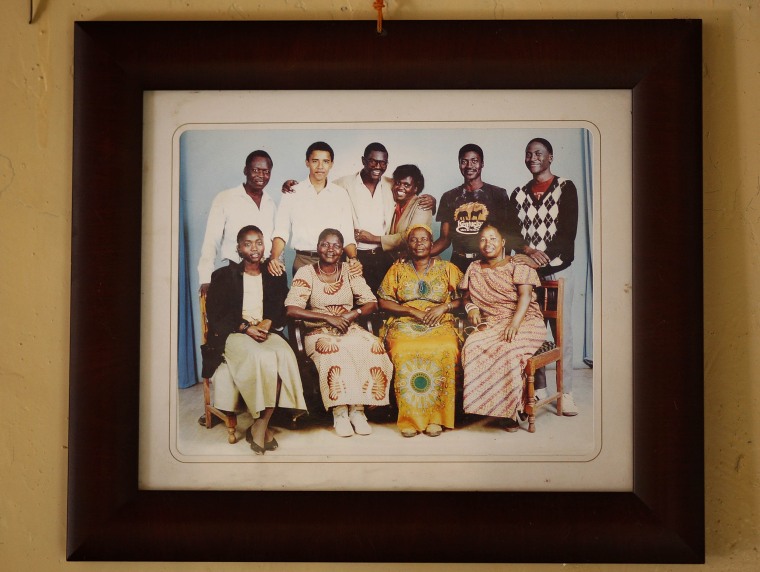When Barack Obama first set foot on Kenyan soil he was a young man in search of a connection to the homeland of a father he barely knew — a young man in search of himself.
Twenty-eight years later, he returns to Kenya as leader of one of the most powerful nations on earth.
"There’s no question, given the lack of a relationship with his father, it’s a homecoming. I imagine it must feel incredible," said Mark Anthony Neal, an African American studies professor at Duke University and author of "New Black Man."
“The trip to Kenya is an exclamation point in a high point of his presidency,” Neal said, adding that the trip to Kenya symbolizes a way of saying to an absent father “look at what I have become.”

And while Obama long ago addressed the coming-of-age questions of racial and cultural identity he wrote about in his memoir “Dreams From My Father,” black studies and foreign policy experts say questions remain on how his administration’s African policies fit in with his personal narrative and, ultimately, presidential legacy.
He is a president who has pushed human rights issues like same-sex marriage — visiting Kenya, where the topic of homosexuality is all but taboo, and Ethiopia, a country with a record of dealing harshly with those who try to exercise free speech.
And while African policy experts say Obama is a beloved figure in Kenya, he’s also a president whose policies on Africa have been criticized as lacking the scope and impact of his predecessors former presidents George W. Bush and Bill Clinton.
Photo Gallery: Kenya Awaits Obama's First Presidential Visit 'Home'
Bush is widely lauded for aggressively working to help tackle the AIDS epidemic by expanding funding for treatment in sub-Saharan Africa, while Clinton received kudos for reducing trade restrictions on more than 30 African nations. These efforts have continued under the Obama administration but some think Obama is in a special position to be doing even more.
“I think it’s important that they recognize that their predecessors have made policies that are sustaining. However, we’re talking about the first president whose father comes from Kenya, and the expectation is that we would take our relationship with Africa to the next level,” said Todd Moss, chief operating officer and senior fellow at the Center for Global Development.
“It would be a shame if the United States led by the son of a Kenyan’s legacy was to just continue the work of his predecessors,” said Moss who also served as deputy assistant secretary in the Bureau of African Affairs at the U.S. Department of State during the second Bush administration.

The White House pushes back against that type of criticism pointing out that this is Obama’s fourth trip to Africa, more than any other sitting president.
On Saturday, the president is expected to open up the Global Entrepreneurship Summit, which is co-hosted by the U.S. and Kenya. He’ll likely also pay tribute to the victims of the 1998 Kenyan and Tanzania embassy bombings, according to the White House.
On Sunday, he is expected to deliver remarks to the Kenyan people and later will speak with civil society participants on wildlife trafficking, girls’ education, and countering violent extremism. On Monday, the president will participate in a bilateral program with Ethiopian officials.
On Tuesday, the president will speak before the African Union — the first U.S. president to ever do so.
“I will be going to my father’s home country of Kenya, and we will be going to Ethiopia, as well. That's my first visit there, but this is my fourth visit to sub-Saharan Africa, more than any other U.S. president — which, I guess, if your name is Barack Obama, I guess that make sense,” the president told a gathering at a reception Wednesday celebrating the African Growth and Opportunity Act, a trade program focusing on sub-Saharan African nations.

During a press briefing earlier in the day and ahead of the president’s visit to Kenya and Ethiopia, National Security Adviser Susan Rice highlighted Power Africa, a $7 billion program in conjunction with the United States Agency for International Development aimed at improving electricity access across sub-Saharan Africa as an example of a “transformative initiative” in the region.
The program, however, has faced challenges in energy delivery.
The Obama administration has also helped push the Feed the Future program, a multi-billion dollar effort aimed at helping eliminate global hunger in such places as sub-Saharan Africa.
Some foreign policy experts say more needs to be done in order to make the kind of impact Bush and Clinton Still, left on the region.
“To date, administration efforts in Africa have been largely symbolic with very little to show for the efforts,” said David Rothkopf, a former Clinton administration official and editor of Foreign Policy Group, a collection of foreign policy publications. “Power Africa and supporting entrepreneurs are worthy goals but again the value of the programs can only be measured in terms of deals and jobs created or investment flows stimulated and frankly there is not much to report.”
The White House says history will judge Obama’s policies toward Africa favorably.
“President Obama’s record on Africa will not only match that of his predecessors but, I will predict with confidence, will exceed it,” Rice said Wednesday.

As for the personal impact of the visit, President Obama said that the type of journey he wrote about in his memoir and again when he visited his ancestral village in 2006 “is probably more meaningful to me than visiting as president because I can actually get outside of a hotel room or a conference center.”
However, he added, “it’s obviously symbolically important.”
As the president stepped from his plane in Nairobi, Kenya on Friday he was simply a man standing against the backdrop of a dark sky pulling his sister, Auma, into a tight embrace.
